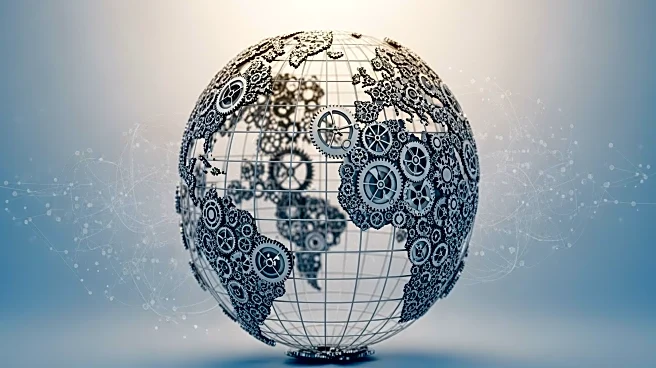What's Happening?
The ASEAN Year of Skills 2025 concluded with a Gala Dinner in Kuala Lumpur, marking significant achievements in skills development and workforce transformation across the region. The event was attended by Malaysia's Deputy Prime Minister Datuk Amar Haji
Fadillah bin Haji Yusof, Human Resources Minister Steven Sim Chee Keong, and International Labour Organization Director-General Gilbert F. Houngbo, along with ASEAN manpower ministers and industry representatives. Launched under Malaysia's ASEAN Chairmanship, the initiative focused on 'Bridging Talent, Building ASEAN' and aimed to address skills gaps, enhance talent mobility, and promote inclusive workforce development. Throughout the year, several key programs were delivered, including the ASEAN Human Capital Development Investment Symposium and the ASEAN TVET Conference, engaging millions of participants and generating significant new course enrollments.
Why It's Important?
The conclusion of the ASEAN Year of Skills 2025 marks a pivotal moment in regional workforce development, emphasizing the importance of human capital in ASEAN's agenda. The initiative has strengthened cross-border collaborations and highlighted the collective commitment to nurturing a skilled and future-ready workforce. By focusing on green and digital economy skills, ASEAN is positioning itself to adapt to global economic shifts and technological advancements. This effort is crucial for maintaining competitiveness and ensuring sustainable economic growth in the region, benefiting industries and communities by creating a more adaptable and resilient workforce.
What's Next?
Although the ASEAN Year of Skills 2025 has officially concluded, organizers have emphasized that efforts to develop adaptable and resilient workforces will continue. Building on the foundations established this year, ASEAN will likely pursue further initiatives to enhance skills development and workforce transformation. This ongoing commitment is expected to involve continued collaboration among governments, industries, and communities, focusing on emerging sectors and technologies to ensure the region remains competitive in the global market.
Beyond the Headlines
The ASEAN Year of Skills 2025 has not only addressed immediate workforce needs but also set the stage for long-term regional collaboration in human capital development. By prioritizing skills related to the green and digital economies, ASEAN is aligning its workforce strategies with global sustainability goals and technological trends. This approach may lead to ethical and cultural shifts within the region, as industries and educational institutions adapt to new standards and practices in workforce development.
















